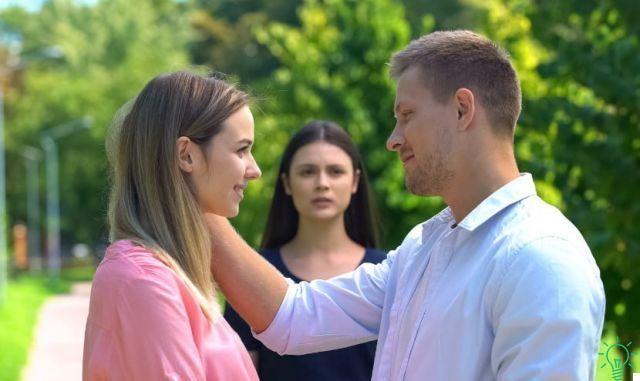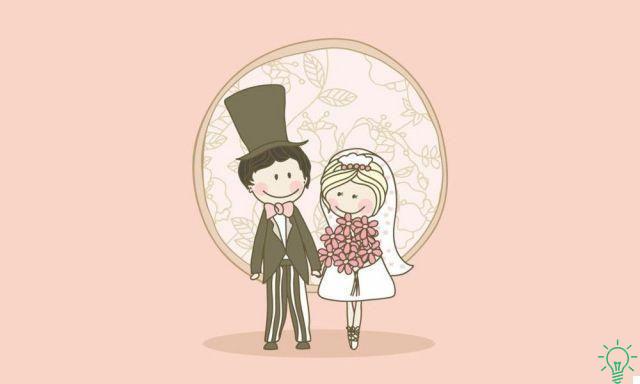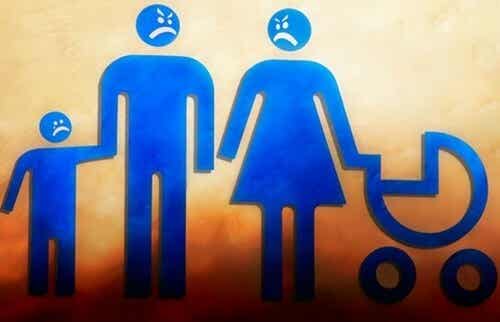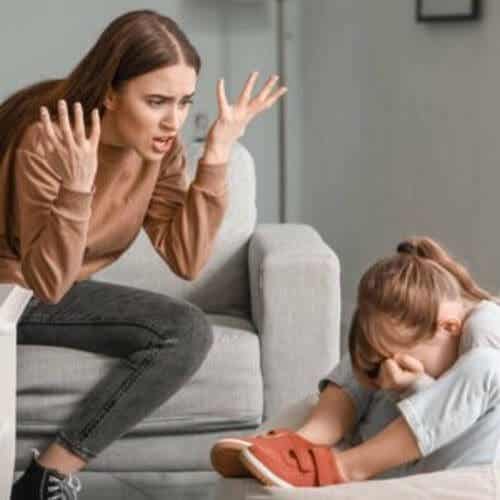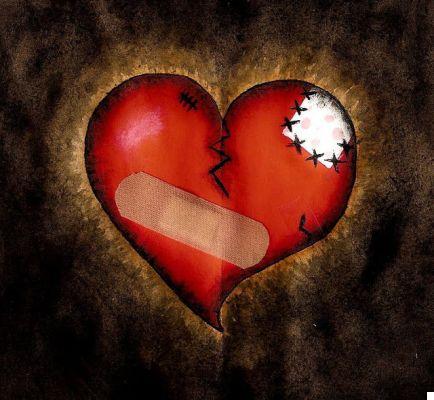Love and hate share the same brain area. This explains why we sometimes hate the person we love with our whole soul. It is an emotional experience that is as common as it is surprising.

Written and verified by the psychologist GetPersonalGrowth.
Last update: 28 November 2022
There are times when we seem to love and hate our partner, and this contradiction makes us despair. How can it be? How is it possible that human beings experience such opposite and contradictory emotions at the same time?
Well, it's interesting to know that science argues that it's normal to look at your loved one and sometimes dislike him.
The vast majority of us are familiar with this feeling. A heated discussion, a misunderstanding or a character clash can momentarily bring out negative feelings.
The truth, however, is that we can have these contradictory feelings even when the partner has done nothing. Just think that life would be less complicated if you weren't in love or that we made too many sacrifices for the couple relationship.
While not regretting anything, it is common for that paradoxical, strange and contradictory feeling to emerge. How do you explain the tendency to love and hate your partner at the same time?
"The opposite of love is not hate, it is indifference."
-Elie Wiesel-
Loving and hating your partner: possible causes
There are times when we love and hate our partner. However, this emotional experience is not as crazy or supernatural as we think.
We love our parents and our children above all, yet there are times when they send us on a rampage. It is therefore a priority to develop our emotional intelligence to the maximum.
We must learn to accept our contradictory feelings because they too are part of our emotional repertoire. This complex web of opposing and chaotic sensations, perceptions and emotions also makes us human.
Because only in fairy tales do people love each other imperturbably and eternally. In real life, we have to deal with the contradiction, the daily conflicts and the existential ups and downs necessary to grow.
The fine brain line between passion and aversion
In a study conducted in 2009 at University College London reveals interesting data. As the researchers analyzed "hate circuits," they found that romantic love shares the same areas with this emotion. We refer to the putamen and the insula.
Semir Zeki, neurobiologist and author of this work, pointed out that although we understand hatred as a negative emotion that must be repressed, the truth is that shares some neurological structures with love.
Love and hate intensely stimulate brain activity and since they involve the same areas we can feel both emotions at the same time and for the same person.
We remember that sometimes we can even hate ourselves. The human being is defined by that constant contradiction that goes from affection to disaffection, from passion to aversion, but generally they are occasional and ephemeral experiences that do not alter one's identity or self-esteem.
Loving and hating the partner, the pain of cognitive dissonance
Feeling love and hate for your partner leads you to question yourself and even your own psychological balance. This happens for several reasons, including the common obsession that all our beliefs and ideas are consistent.
When we feel some rejection and even anger towards a loved one, we come into conflict and that anguish called cognitive dissonance appears.
This term refers to the lack of inner harmony that one feels when one feels one thing and does the opposite or when beliefs and emotions come into contradiction.
We need to rationalize these situations and accept the conflicting feelings. Another fact must also be taken into consideration. In human relationships, ambivalent feelings are ephemeral, that is, they last very little.
And usually, love always prevails. The emotion of hatred is volatile and disappears like smoke sneaking through an open window.
We are not perfect and neither are our emotions
We can love and hate our partner because we find that they are not the ideal and perfect being that we thought at the beginning. Nobody is. We all differ in personalities, hobbies, strengths and weaknesses, so sometimes we collide.
Feeling passion and disaffection at the same time is a way to discover ourselves, and then work on those small differences and achieve the precious harmony.
After all, love lives on an emotional wheel that goes from admiration to resentment, from charm to monotony, from enthusiasm to despondency. But there are dimensions to that always prevail (or should prevail) and are affection, understanding, care, empathy.
We should learn to accept that nothing defines the human being as the punctual ambivalence, the ephemeral contradiction.




